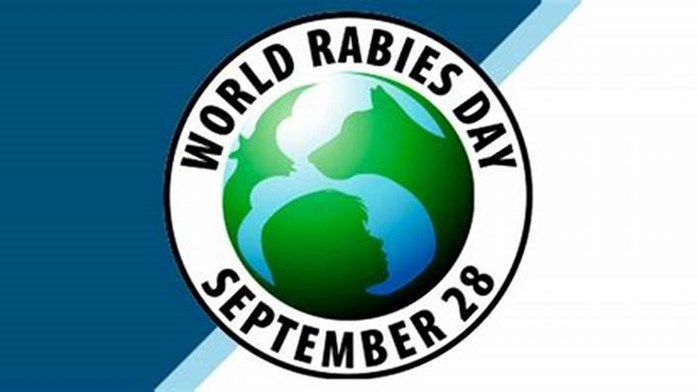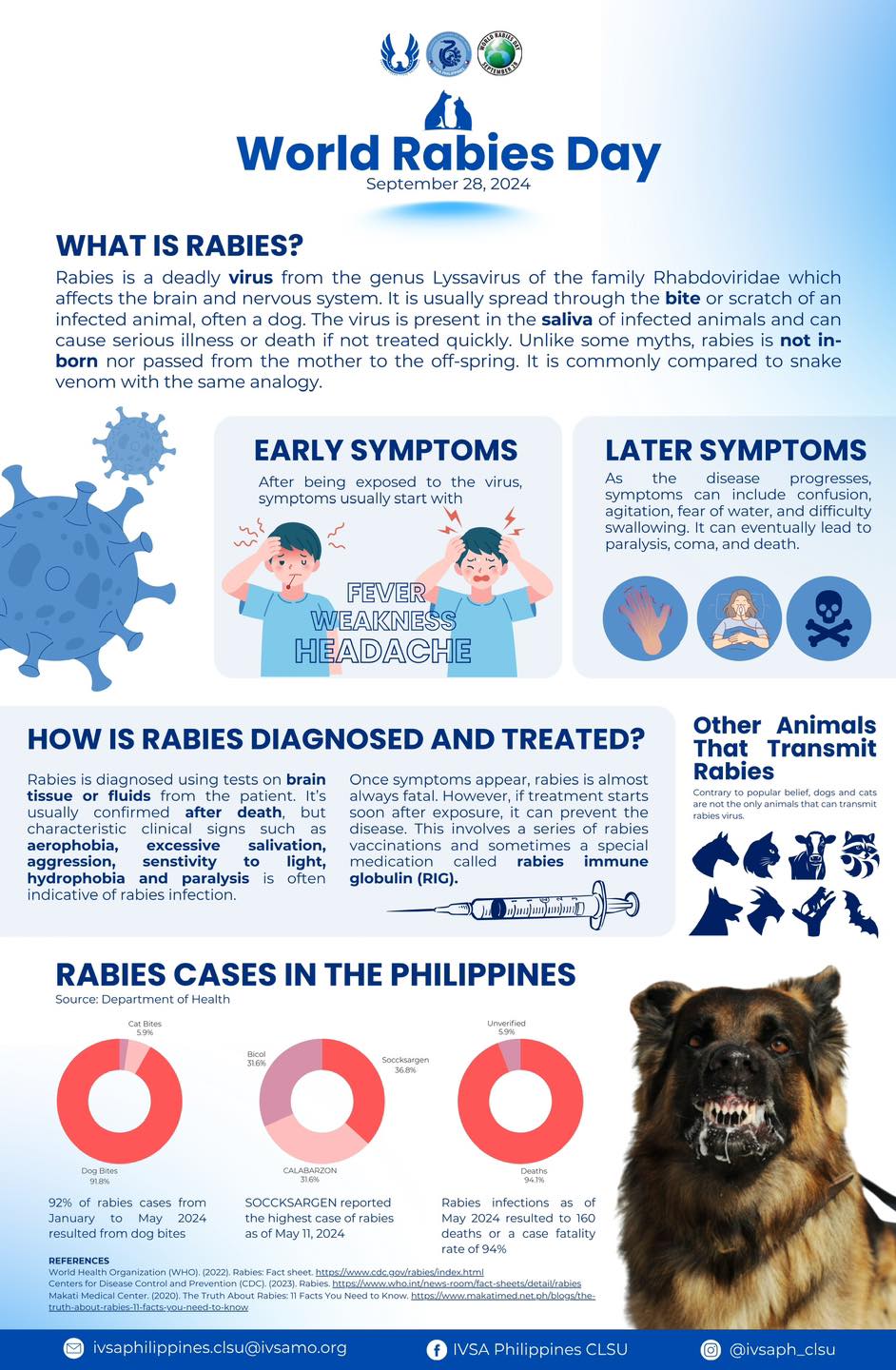Central SA
World Rabies Day 2024: ‘Breaking Boundaries’ to combat a deadly disease─── HEIDRÈ MALGAS 10:22 Sat, 28 Sep 2024

“Rabies is a viral disease that can infect any mammal, and once symptoms appear, it is 99.9% fatal.”
World Rabies Day 2024 is commemorated on 28 September under the theme “Breaking Boundaries”, aimed to combat one of the deadliest zoonotic diseases affecting humans and animals alike.
“Rabies is a viral disease that can infect any mammal, and once symptoms appear, it is 99.9% fatal,” according to the South African Government.
Animals infected with rabies exhibit changes in behaviour and neurological symptoms. These include excessive drooling, paralysis, difficulty swallowing, continuous vocalisation (barking, whining, howling), and aggression. Additionally, an infected animal may appear weak and unresponsive. 
The National Institute for Communicable Diseases (NICD) emphasises that rabies outbreaks in domestic dogs occur primarily when the animals are not sufficiently vaccinated. Consequently, any community in South Africa may be at risk if these preventative measures are not in place.
“It is crucial that all dog and cat owners ensure their pets are vaccinated against rabies within the past three years to protect their pets, themselves, and their children against this uniformly fatal disease. The first animal vaccine is administered at three months of age, followed by a booster within the next nine months,” says the NICD.
Preventative measures for humans, according to the NICD, include thorough washing of the wound for at least 10 minutes with water or soap and water to wash out the virus, and a course of rabies vaccinations into the arm to produce antibodies against the virus. In the case of a scratch with blood or a bite, the addition of concentrated rabies antibodies into the wound is essential to immediately neutralise the virus.
Dr. Didi Claassen, Afrivet’s head of pathology, adds: “Although rabies is commonly linked to dogs and wildlife, it also affects livestock, including cattle, sheep, and goats.”
World Rabies Day 2024 serves as a reminder of the importance of vaccination and preventive measures in protecting both humans and animals from this fatal disease.
The NICD outlines essential rabies prevention methods: regularly vaccinating pets (initially twice in the first year, then annually in high-risk areas or every three years elsewhere), avoiding unknown or stray animals, and getting immediate medical attention, including rabies post-exposure prophylaxis, after potential exposure. Rabies can be prevented by keeping your dogs’ and cats’ vaccinations up to date.













